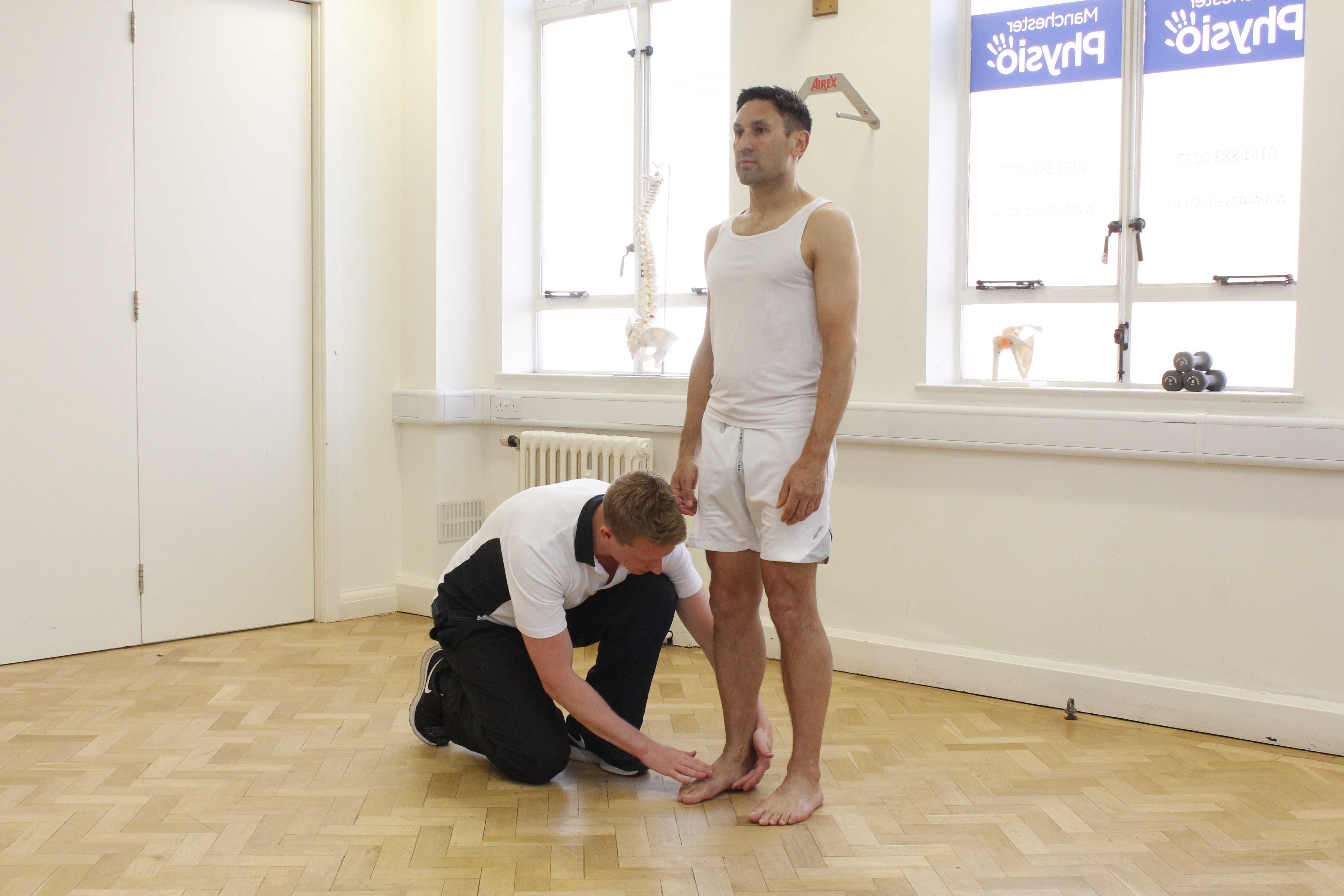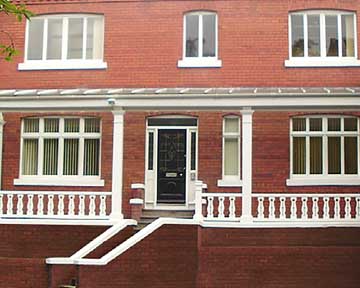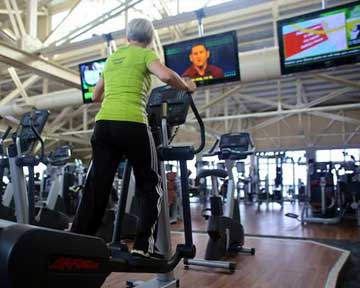What Causes Heel Pain?
There can be many conditions affecting the foot and ankle that can cause heel pain. Occasionally the cause can be referred pain generated from the knee, hip or back. Most often it is a result of direct trauma or an overuse injury, some of which we have listed below.
Plantar Fasciitis
A common cause of pain in the heel is plantar fasciitis, or as it is sometimes referred, 'heel spurs'. This condition occurs mainly in runners and is frequently associated with a biomechanical abnormality, such as excessive supination and pronation of the foot. Pain is usually worse after long periods of rest, most noticeably first thing in the morning. The inside and forward boarder of the heel is normally tender when pressed, a sensation that can spread along the base toward the ball of the foot. Treatment begins with avoidance of aggravating activity and can include, ice, stretching, inserts for the shoes and advice on supportive footwear.
Fat Pad Syndrome
Another common cause of heel pain is fat pad syndrome or contusion. This is also known as a 'bruised heel'. This may develop acutely from a fall onto the heels or chronically from excessive heel strike with poor heel cushioning. Treatment involves rest, the use of a heel cup, good footwear and taping.
Calcaneal Stress Fractures
Calcaneal stress fractures result from overuse, typically through activities or sports that require repeated impacts of the heel onto a hard surface. This can easily result from running on roads and pavements with footwear that offers insufficient cushioning. Diagnosis of a fracture would require a careful examination to rule out other conditions and an X-ray to assess the severity of the fracture. Symptoms would include pain when pressure is put through the heel, swelling and discolouration. Early treatment will likely include being non-weight bearing on the affected heel for a few weeks, followed by mobilisations, massage, exercises and advice on activity and footwear modification.
What would a physiotherapy assessment for a Heel Pain involve?
In the case of a foot fracture, once it has had time to begin healing, you will have follow up x-rays. When your foot is strong enough, physiotherapy can help to strengthen and increase the mobility in your ankle and foot, and help you to slowly bear more weight onto your foot.
At Liverpool Physio, we want to gain as much information as possible about your injury to ensure we give you the best treatment. In your first appointment with us, our physiotherapists will carry out an assessment which has two parts:
Subjective Assessment
A conversation between yourself and our physiotherapist to gain an understanding about your lifestyle and what you want to progress back to, the cause of your injury, and your progress since your heel pain began.
Objective Assessment
An assessment of your current pain levels, range of movement, walking stability (depending on your weight bearing status), scar tissue management (if you have had surgery) and foot/lower leg strength and mobility.
 Above: Foot or heel pain could be related to your gait it could be due to poor fitting shoes.
Above: Foot or heel pain could be related to your gait it could be due to poor fitting shoes.What would Physiotherapy treatment for Heel Pain involve?
Our experienced physiotherapists at Liverpool Physio will aim to achieve the best possible functional recovery, to ensure your pain free return to normal activities and sports participation. Early diagnosis will allow you to modify your activity and receive treatment which can speed up your recovery. The exact treatment received will vary depending on your injury and presenting symptoms, but could include;
- Soft tissue massage, to relieve stiffness and pain.
- Flexibility and Strengthening exercises to match level of healing.
- Mobilisation exercises, passive and active.
- Balance exercises to improve proprioception and stability.
- Heat treatment, and Ice in the early stages.
- Ultrasound therapy to promote healing in the affected tissues.
- Taping to support the arch and encourage foot position awareness.
- Footwear suitability assessment and advice
- Advice on use of orthotics, wedges and insoles.
- Biomechanical abnormality analysis and gait re-education.
- Advice on activity modification and the use of splints.
Physiotherapy treatment will reduce pain and accelerate healing so that you can get back to your sports and everyday activities as quickly as possible. We can provide you with a targeted exercise program that will help you recover and reduce the risk of re-injury.
For more information about how physiotherapy can help treat heel pain, or to book yourself an appointment, please email us at office@liverpoolphysio.co.uk or ring us on 0151 558 0077.
How can I arrange a physiotherapy assessment for Heel Pain?
If you are having problems including pain, stiffness or signs of inflammation around one of your feet, particularly the heel, you would benefit from an assessment at Liverpool Physio from one of our experienced physiotherapists.
You can contact us directly to arrange an assessment and we can advise you if further treatment is recommended, or give you details on self-management for minor cases. To arrange an appointment please email office@liverpoolphysio.co.uk or call 0151 558 0077.
Summary
Heel Pain can have a pronouncedly limiting effect on your daily activities and any sports participation. Without early intervention the condition can easily become chronic and take far longer to heal. With Physiotherapy intervention we can reduce your painful symptoms and speed up recovery, tailoring a treatment plan to your specific needs.
We can use a combination of massage, taping, ultrasound, mobilisations, stretching and strengthening exercises to ensure you achieve the best possible return to normal function. Every treatment session will aim at getting you back to the daily activities and sports you enjoy.
For more information on how physiotherapy can help treat heel pain, or to book yourself an assessment, please email office@liverpoolphysio.co.uk or ring us on 0151 558 0077.
↑ Back to top
















